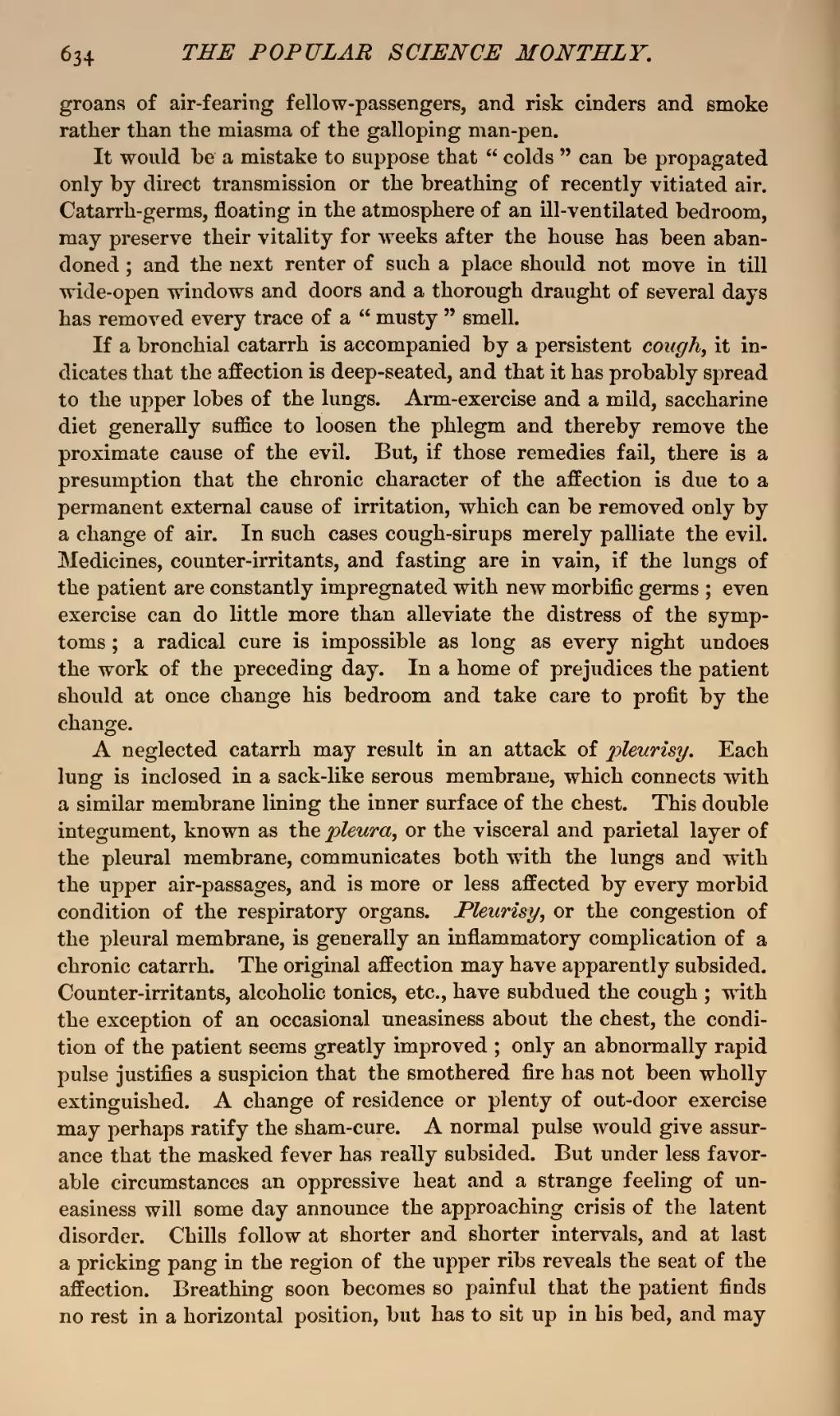groans of air-fearing fellow-passengers, and risk cinders and smoke rather than the miasma of the galloping man-pen.
It would be a mistake to suppose that "colds" can be propagated only by direct transmission or the breathing of recently vitiated air. Catarrh-germs, floating in the atmosphere of an ill-ventilated bedroom, may preserve their vitality for weeks after the house has been abandoned; and the next renter of such a place should not move in till wide-open windows and doors and a thorough draught of several days has removed every trace of a "musty" smell.
If a bronchial catarrh is accompanied by a persistent cough, it indicates that the affection is deep-seated, and that it has probably spread to the upper lobes of the lungs. Arm-exercise and a mild, saccharine diet generally suffice to loosen the phlegm and thereby remove the proximate cause of the evil. But, if those remedies fail, there is a presumption that the chronic character of the affection is due to a permanent external cause of irritation, which can be removed only by a change of air. In such cases cough-sirups merely palliate the evil. Medicines, counter-irritants, and fasting are in vain, if the lungs of the patient are constantly impregnated with new morbific germs; even exercise can do little more than alleviate the distress of the symptoms; a radical cure is impossible as long as every night undoes the work of the preceding day. In a home of prejudices the patient should at once change his bedroom and take care to profit by the change.
A neglected catarrh may result in an attack of pleurisy. Each lung is inclosed in a sack-like serous membrane, which connects with a similar membrane lining the inner surface of the chest. This double integument, known as the pleura, or the visceral and parietal layer of the pleural membrane, communicates both with the lungs and with the upper air-passages, and is more or less affected by every morbid condition of the respiratory organs. Pleurisy, or the congestion of the pleural membrane, is generally an inflammatory complication of a chronic catarrh. The original affection may have apparently subsided. Counter-irritants, alcoholic tonics, etc., have subdued the cough; with the exception of an occasional uneasiness about the chest, the condition of the patient seems greatly improved; only an abnormally rapid pulse justifies a suspicion that the smothered fire has not been wholly extinguished. A change of residence or plenty of out-door exercise may perhaps ratify the sham-cure. A normal pulse would give assurance that the masked fever has really subsided. But under less favorable circumstances an oppressive heat and a strange feeling of uneasiness will some day announce the approaching crisis of the latent disorder. Chills follow at shorter and shorter intervals, and at last a pricking pang in the region of the upper ribs reveals the seat of the affection. Breathing soon becomes so painful that the patient finds no rest in a horizontal position, but has to sit up in his bed, and may

